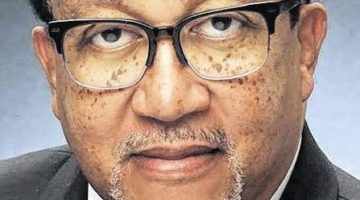The United States should provide more aid to the countries of the Caribbean Community (CARICOM) to avoid an influx of refugees from the region. That warning has come from the prime minister of Antigua and Barbuda, Gaston Browne. The U.S. must “pay more attention to the Caribbean region in helping us to maintain our standard of living to avoid any mass movement of people,” he said. The alternative would be that “they’ll end up on the shores of the United States as refugees," Browne told the Reuters news agency in a Jan. 25 interview.
Caribbean countries are saddled with debts sometimes equivalent to 100 percent of gross domestic product (GDP) and are having to rely on loans offered on favorable terms by Chinese banks, Browne told Reuters reporter Brian Ellsworth. Such loans have totaled more than $4 billion in the past 10 years, with much of the funds going to infrastructure development, Ellsworth reported, citing figures from the Washington-based Inter-American Dialogue. Browne said that the Chinese loans are provided on more favorable terms than those from agencies such as the International Monetary Fund but that should not be interpreted as a political statement. Browne was right to highlight the need for greater American assistance and not just because, as he pointed out, China has been doing so or to preempt a flood of refugees but also because most of the CARICOM nations are stable and democratic and it will be to the advantage of the U.S. to help them sustain their stability.
A substantial part of U.S. aid intended for the region goes to Latin America usually to promote democracy, fight drug-trafficking or, more recently, stemming the flow of refugees. As a result, the assistance has seemed to be a prime example of the proverbial squeaky wheel getting the grease.
Overall, U.S. foreign aid for fiscal year 2020 totaled $51 billion, of which $39 billion consisted of economic assistance. Around $336 million was dedicated to CARICOM countries, Reuters reported, but most of it to politically and economically distressed Haiti. Only about $70 million was earmarked for other member-states, which have a combined population of about total 7.5 million.
But whether or not American aid increases, the newly wealthy CARICOM states – Guyana and Suriname – and also Trinidad and Tobago, a long-time oil producer – should try to assist the other countries. Guyana became an oil producer recently with deposits so far discovered totaling at least 10 billion barrels, according to ExxonMobil, the American petroleum giant which is leading the exploitation of the reserves.
Economists estimate that oil revenues will make Guyana one of the richest Western Hemisphere countries on a per capita basis by 2040. In fact, the country is expected to receive more than $950 million from its oil just this year, Finance Minister Ashni Singh told the National Assembly on Jan. 26 when he presented the new budget. The gross domestic product (GDP) is expected to grow by 47.5 percent, the highest in the world. Additional oil deposits are being found, the country is developing its natural gas potential and efforts are being made to realize a long-held dream of developing hydro-electricity now that the financing is finally available.
Guyana, Suriname and Trinidad and Tobago can create a special CARICOM relief fund, administered by the Guyana-based CARICOM Secretariat. Brazil, though not a CARICOM member but an obvious friend of the group, should be wooed into joining such an aid program.
As it is, though, there are no reports that such an economic assistance plan is in the works. News reports on Singh’s budget presentation did not include any mention of aid from Guyana to other CARICOM countries. What has been taking place are talks involving Guyana and Suriname, which has reserves of around 100 million barrels, and Brazil, which has reserves of 12.7 billion barrels.
Those talks are interesting because they involve three neighboring countries with three different languages (Brazil, Portuguese; Guyana, English; Suriname, Dutch) and colonial experiences. But, even more, while they do not necessarily point in that direction, the discussions call to mind the initial position of the People’s Progressive Party, major partner in Guyana’s ruling coalition, during the early attempts at regional integration. That position, as old-timers recall, was that the country had a “continental destiny” instead of one with the island nations of the Caribbean.
But that is unlikely. Guyana has a very good reason to forge close ties with Brazil as a counter to Venezuela, another neighboring state which also has oil reserves, totaling about 300 billion barrels, the largest in the world. Ideally, Venezuela would be a welcome addition to the fledgling regional petroleum co-operation moves but the Spanish-speaking nation has refused to relinquish its more than a century-old claim to two-thirds of Guyana’s 83,000 square-mile territory. That dispute is now before the International Court of Justice. Guyana also had a much smaller border dispute with Suriname but that was settled in 2007.
Guyana, a founding member of CARICOM, can therefore play a dual role of spearheading the creation of a multinational aid program for distressed CARICOM nations. Guyana can also play a role in forging stronger links between the islands of the Caribbean and South America.
But Guyana also has internal disputes to resolve, with opposition politicians and some analysts claiming the government is not transparent enough about its dealings with the large petroleum companies exploring for and exploiting its oil and, even more significantly, about its plans to use the country’s huge windfall from oil.
The ruling coalition would be wise to include the opposition fully in those plans to rebut persistent claims of corruption and also make a major effort to finally begin to lay to rest the racial animosities that have plagued the country for more than half a century so that the bright economic future can really be one for all Guyanese.












No Comment